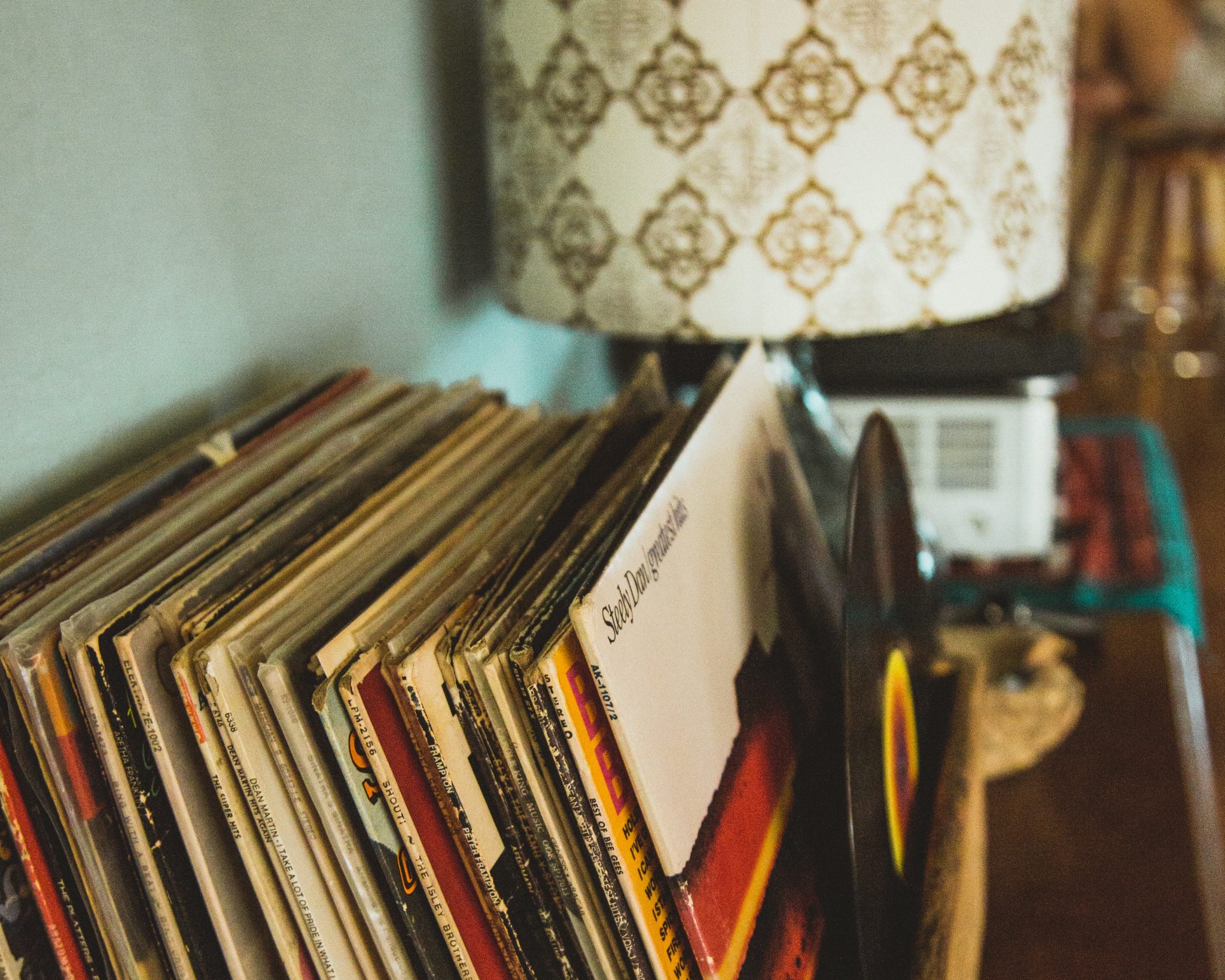Sending demos to record labels as an “unsigned” artist—an online experiment
Being a “signed” artist is a big topic; it’s both a good thing and a bad thing at the same time. People’s perceptions of being “signed” to a label is mainly the issue, in my opinion. In a past article, I stated that you could go label-less and still do fine in music. But what if you want to be signed and want to collaborate with others and constantly face obstacles? For the sake of this article—which took me a while to write—I went undercover using an alias: I made some music outside of my usual music signature and then contacted a bunch of labels to see how things go when you have a very low profile on Soundcloud and are sending demos to record labels online.
The idea of going undercover was primarily to see how labels reacted to an unknown artist with quality music, but also to decipher how to make things easier.
But before I share the story of what happened, let’s talk plain strategy and I’ll share a few facts with you that I had in mind before embarking on this experiment.
What a label will look for in new potential artists
1. Labels want music that fits the label’s sound/ethos, and an artist that fits their image, so it can be presented and sold properly. Listen to the latest releases of the label on Bandcamp/Soundcloud to see if your music fits. Note: many people will contact a label based on music they released years back, and that’s usually a big mistake.
2. Usually labels will want someone from within their network. If you’re not friends of friends, the odds you fit into “the circle” is less likely, so it’s important to do a bit of name-dropping or to get to know people that the label knows.
3. Having depth in your collection of tracks is critical. If the label likes 2 of the 4 songs you have, they might ask for more. Having a bunch more is very useful, plus it shows that you write on a regular basis. In other words, it shows you’re serious.
4. It’s a huge win if you tour, play gigs, or have important releases up your sleeve. This can be an issue for many. There are way too many producers and performers compared with the number of opportunities to release and play out. So it’s a catch-22; you’re more likely to release because you already release music, and you’re more likely to play out because you already play gigs. If you don’t, then you’ll get less traction. One doesn’t guarantee the other, but either definitely helps your profile. Your network of contacts is a very important factor for finding success with your music, so whatever you do, building a contact network is equally as important as making quality music.
Getting back to my unsigned alias experiment, I decided to take on a role of someone who is completely outside of the system, is new to production (but is knowledgeable), and never plays out or releases anything. I created an alias—which I won’t reveal here as I want this experiment to be ongoing—and I said I was from Scandinavia, where the scene for micro-house is not super strong. My communication skills were okay, but I didn’t know anyone in any of the label networks I contacted.
So how did it go?
This experiment went terribly.
I contacted thirteen labels with four tracks. I validated my work with a friend who said the tracks were good, playable, and release-worthy beforehand. As a label owner myself, I’m very picky about how someone should approach me, so I wrote a professional email for each label. I contacted each label on Soundcloud and through email if possible. Ideally, I knew the best way of getting a label’s attention would be to go through an artist on the label, but I didn’t want to blow my identity. Here’s the message I sent:
Hello! My name is [XXXXX] and I’m a young producer from Scandinavia. I got familiar with your label through discovering releases that I believe are similar to the music I’m making. I checked your latest releases on Beatport to see what you’re up to recently and I think you could probably enjoy these 4 tracks I’d like to present you. Let me know what you think.
The four tracks I sent out were in private mode on Soundcloud, and I made sure that people didn’t listen to them before sending them out. My account on Soundcloud had no followers, and the profile picture was pretty enigmatic as well.
Out of all of the thirteen labels I contacted, only four took the time to listen to some of the tracks, not all. Only one label replied to my initial message with a “thank you.” Honestly, if I was the guy I pretended to be, I would be pretty discouraged. I’d say that even myself as a veteran musician, when I try contacting labels sometimes it’s still, very, very hard. I even followed up with the non-responsive labels with my Pheek alias and even then, still no replies.
From this experiment, I concluded that no matter how talented, polite, and organized you are, it’s very unlikely for things to work out well for you if you submit your demos online like a cold-call. The most successful deals will happen because you’re part of a network that probably has in-person contact. In past posts, I have been insistent on the importance of working on what you can control: the quality of your music, originality of your ideas, working with people you can count on…etc.
What labels look for in the online profiles of artists
If you still want to submit your demo online despite the difficulty in getting it heard—let alone signed—here are some tips about what labels are looking for:
- An online presence: presence on the most important websites such as Instagram, Soundcloud, Resident Advisor, Mixcloud.
- Material published on a Soundcloud profile with comments from listeners. No one wants to see 5k plays or less and no likes or feedback. As a label owner, I also don’t like to see a profile with no music posted publicly. As an artist, it’s important to have some kind of portfolio. It can be published material, but if you’ve never had a release, posting music you’re working on is a sign that you’re serious about what you do.
- Self-published material is always a plus. I like to see people who don’t wait for things to happen to them, but are proactive and have the energy to make things move, even if not much is going on afterwards. Seeing someone who has a non-empty Bandcamp profile shows some seriousness and experience with how to create a release.
- An artist with tons of quality music that is unsigned. There’s nothing more exciting than to discover an artist that is emerging that has tons of quality tracks waiting for getting signed. I can’t emphasize enough on this to new artists I work with with mix and mastering. Keep making music—tons of it. Make sure your work is quality so that the day you find a label who wants to work with you, you’ll be more than ready to present them the best quality album you have. Additionally, when a label knows that you’re working with a mentor, an engineer (myself or someone else), it shows your dedication and passion, which is also something labels really want to see in you. One of the hardest parts of finding a label is presenting yourself to the world and to DJs, so anything that can leverage your release(s) is something that can make a big difference in the end.
If you’re unsigned and you’ve had feedback from people you trust saying your music is quality, stay focused on making music and dedicate some time to trying to find people who want to work on it with you. Part of me believes that anyone talented will always find a place to release. Usually my clients hate when I say that, but I’ve had people come back to me years later who’ve finally found some level of success. I think some of the best places to meet people that you can rely on are festivals, record stores, and other in-person events where you can spot artists. You can reach out to DJs right away, but perhaps it’s more effective to reach out to a network or a group of people. What if you’re socially awkward? Typical issue for us nerds. I’ve worked with people in this position and the ones who “made it” were the ones that were picky about the contacts they made. I’d encourage you to join our community on Facebook, too—we’re friendly 😉
SEE ALSO : How To Reinvent Your Sound












I identify 100% with this. I always politely send my music to all kinds of labels, completely associated with my type of music (avant-garde) and no one ever listens to a single track! Not to mention that no one ever responds. It feels like I don’t exist… It’s incredible. Thanks for the post.
Hey, I just emailed you: Hi, sorry about your friend.
The music he likes has a place, but it seems like he hasn’t found his community yet. That is the key to promotion and connecting with people. Performing in a place can also help. But it’s important to understand that it’s not because you make music and put on bandcamp that you’ll have visitors and people interested in it. The concept is more complicated than that. If I’d be him, I’d ignore labels and promoting. I’d focus more on trying to find a local community that is into the same music, get to know who’s who and then eventually share.
The music he has could benefit from some post-production/mastering. It’s a bit raw. Unless he likes that. But it might scare off people!
hi,
i note this was from last year, but still relevant. WRT you point about the inner circle – i did have a contact at a record company and luckily managed to get some air time with their A&R although it came to nought. it’s a good point about the private tracks too – i got told directly, never to send links to public tracks as they can’t use them.
greg
Hey Greg! I’m not sure I understand your question. Feel free to send me an email or clarify it so I can help.
I’m a young unprofessional musician and I enjoy singing so much and I’m also 15 years of age . I’ve been having troubles to find a record label to suit me and my situation , it’s like there are catogories for signed artists only.
I’m not sure I understand but yes, for labels, your situation is not necessarely interesting. You’d require a steep investment to get a return. For young and upcoming artists, being a label is attractive but not a good option. it’s easier and better to do things DIY, build your catalog and then be a strong asset for later on.